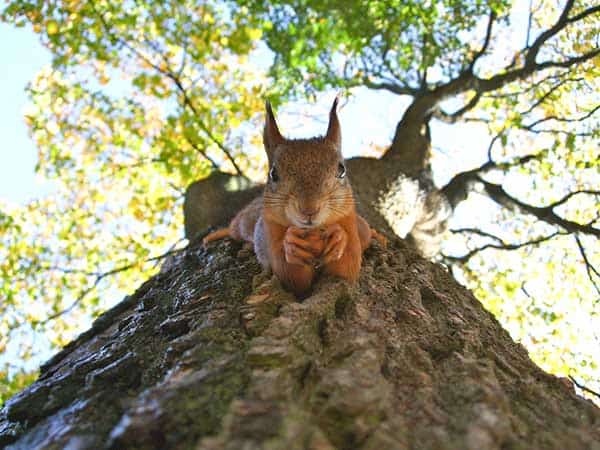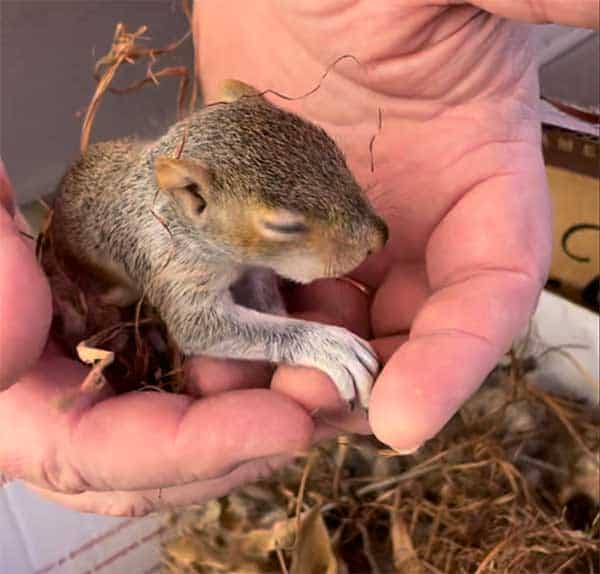Squirrels, Sportsmen and Paradoxes
Every deer hunter knows from whence I speak. It starts as your heartbeat quickens and blood pressure skyrockets to astronomical levels at the unmistakable rustling of dry leaves. You know darn well it’s the trophy buck you’ve caught glimpses of while driving to work early in the morning or standing out in the field at sunset as you return home.
You’re cagey enough not to turn your head, for fear of scaring the buck, so you continue sitting statue still. Slowly, the rustling gets louder as the buck gets closer. He’s close enough now that you “snick” your safety off but keep your finger off the trigger. Slowly, the rustling is to your left, perfect for a right-hand shot. Just a few more steps and the buck of a lifetime will be in your field of view.
You try with all your might to keep your heart from exploding and your wits about you, to hold your rifle steady as you imagine placing your crosshairs snug behind the shoulder as the buck unknowingly saunters by. He’ll never know what hit him, you sheepishly grin to yourself. Then it happens!
Your buck isn’t a buck after all. Somehow, he’s managed to morph into a Boone & Crocket sized squirrel scurrying around at daybreak. Your body dumps all the pent-up adrenaline you’ve been holding back, as you disappointedly “snick” your safety back “on” and give the squirrel your best stink eye.
Scenes like this play out during hunting season thousands of times a year, fooling hunters everywhere. If it hasn’t happened to you, you’re fooling yourself. It’s no wonder frustrated hunters hate squirrels for getting their hopes up high.
Sure, I’ve hunted squirrels, eaten them, fed them, and watched them raid our bird feeders and garden during the year. My wife and I even joke we have the best fed squirrels in the neighborhood. But they’re still no buck.
Getting Hands-On
Speaking of squirrels, we had a large pin oak tree that had seen better days. At full maturity, its lifespan was declining. Bores, along with a fatal fungus, started the decaying process. The bark peeled, exposing the wood. As the decay continued, we knew we needed to cut the large oak before a strong wind knocked it over.
A few calls, some estimates, and we had a date. A large crane was used to attach large limbs as they were cut and safely lowered to the ground. It only took three hours to have the entire tree cut down.
We also knew there were still two nests in the tree. But we weren’t sure if there were babies or not. Who wants to evict a nest full of baby squirrels? We sure didn’t.
Sure enough, the tree cutter gingerly lowered a large branch to the ground with three baby squirrels in it. My wife retrieved a box and scooped part of the nest and the babies into the box. She then called an animal rescue about how to proceed with the newly orphaned babies.
The rescue lady told my wife that mother squirrels in particular, are wonderful mothers and to place the babies in a box with a sock full of heated rice to keep them warm, along with some of the nesting material. She continued to then place the box near the tree.
I’ll admit I was skeptical, but we set the box on one of the freshly cut stumps and left it alone. Half an hour later momma squirrel returned, retrieving each baby by the scruff of the neck, taking them to the back-up nest in our neighbor’s yard.
Thinking our rescue was over, my wife dumped the remaining nesting material consisting of shredded leaves, sticks and some cotton from this past years Christmas decorations in the front yard into our garden. About a half hour later my wife told a friend about the adventure and went out to take a picture of the nesting material. It was gone! I guess momma squirrel needed more nesting material for the new home and took advantage of the old material.
Perplexing Paradox
I’ll admit those baby squirrels were too stinking cute to do anything but rescue. This all ties into one of the biggest paradoxes known to man. Killing what you love to sustain yourself while enjoying nature during hunting season. Hunting is conservation and keeps the animals in check.
If it’s not hunting season, most hunters bend over backwards to help wildlife in need. Even in-season, sporting hunters help animals, choosing to pass on vulnerable critters. It’s called being a sportsman. Hunters I know with land all have a “hands-off” policy on home-range critters. These animals are practically “pet-like” and considered off limits.





